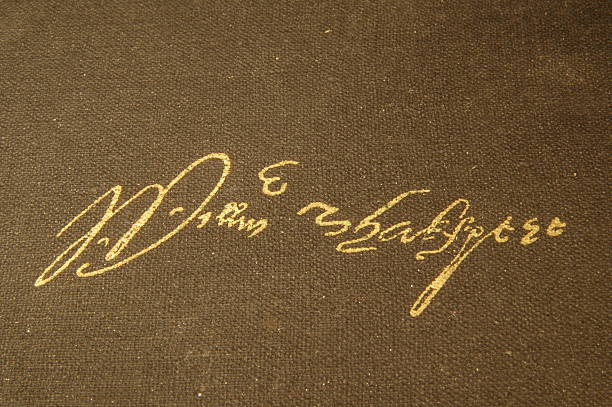Why Words Meant More in Shakespeare’s Time
In a world that rushes through texts and emojis, it’s easy to forget how powerful words once were. In Shakespeare’s time, a single phrase could melt a heart, ignite a war, or change the course of love forever. Back then, to speak was to bare one’s soul, especially in matters of the heart.
When Shakespeare spoke of love, he didn’t just say, “I care.” He spun golden threads of feeling into verses that lived for centuries. And when someone mattered, they were compared to stars, seasons, and celestial wonders. Words had weight. Meaning lingered.
So, if today’s “You matter” feels flat, maybe it’s time to dip your pen in the inkpot of old and revive the grandeur of Elizabethan affection.
What Is the Shakespearean Equivalent of “You Matter”?
To say “You Matter” the way Shakespeare might have, one would never be so direct. Instead, he might’ve said:
-
“Thou art the moon that governs my tide.”
-
“Without thee, my heart is a barren field.”
-
“To me, thou art all the world.”
These aren’t just compliments. They’re poetic confirmations of one’s existence in another’s life — declarations that someone is not only seen but deeply cherished.
In Shakespearean terms, to matter wasn’t just to be acknowledged. It was to be central to someone’s being, essential to their breath and beat. That’s the essence we aim to recapture.
Real Shakespearean Quotes That Say “You Matter”
Shakespeare never used our modern phrasing, but the sentiment ran through every quill-stroke of his plays and sonnets. Below are quotes that embody the same emotional gravity as “You Matter”:
“I do love nothing in the world so well as you.” – Much Ado About Nothing
“Shall I compare thee to a summer’s day? Thou art more lovely and more temperate.” – Sonnet 18
“I would not wish any companion in the world but you.” – The Tempest
“You are my heart’s content.” – Henry VI, Part 3
Each of these quotes is a universe of emotion wrapped in melody. These aren’t casual phrases. They are soulful affirmations, whispers across time that continue to resonate.
From “Thou Art” to “Mine Own Heart”
In Shakespearean English, every word carried layers. “Thou art” wasn’t just “You are.” It was an intimate way of addressing someone close, a term saved for love, family, and deep friendship.
“Mine own heart” is a way of saying someone is not just loved but a part of the speaker’s very self. Imagine calling someone your “own heart” — how could they ever doubt that they matter?
You can create your own affirmations, such as:
-
“Thou art the light that ends my sorrow.”
-
“In thee, I find my reason.”
-
“Thou matterest more than gold and stars combined.”
These may sound ornate — but that’s the beauty. Grandeur suits love.
How to Write Your Own Shakespearean Affirmation
Want to tell someone they matter — the Shakespearean way? Here’s how to craft your own phrase with ease:
-
Begin with a classic address: “Thou art,” “Sweetest,” “Mine own…”
-
Use metaphor: Compare them to stars, weather, oceans, or celestial bodies.
-
Add emotion: Express how their presence transforms you.
-
Close poetically: Let it linger — “evermore,” “’til time doth end,” “by heaven’s light.”
Example:
“Thou art the summer sun that melts the frost of all my yesterdays.”
Feel that? It’s not just flattery — it’s poetry that says they matter in ways beyond simple speech.
Modern Uses of Old Words: When to Say It Today
You might ask, “Isn’t this too dramatic for today?” In truth, no.
Use these phrases in:
-
Love letters or anniversary notes
-
Wedding vows
-
Cards for friends who need affirmation
-
Instagram captions with a literary flair
-
Private texts to someone having a rough day
Shakespearean affirmations show you took time to choose your words. And in a world of shortcuts, that speaks volumes.
Frequently Asked Questions (FAQ)
Q: What’s a poetic way to say “You Matter” using Shakespearean language?
A: Try, “Thou art to me the firmament whereon my stars do shine.” It elevates the sentiment with grandeur.
Q: Did Shakespeare ever say something like “You Matter”?
A: Not in modern terms. But he conveyed the idea in dozens of ways — from comparing lovers to stars to calling them “all the world.”
Q: Can I use these phrases in a speech or toast?
A: Yes! In fact, they’ll leave a memorable impression. A Shakespearean phrase in a toast adds elegance and depth.
Q: Is it okay to write a love letter in old English?
A: Absolutely. Just keep the tone sincere. Combine poetic phrasing with personal meaning, and it becomes unforgettable.
Q: What if I want to sound less formal?
A: Soften the structure. You could say, “You are my constant star” — Shakespearean in feeling but modern in voice.
To Conclude: “Thou Art Enough”
In the end, saying “You Matter” doesn’t have to be mundane. With the eloquence of Shakespeare’s world, your words can become timeless treasures — verses that don’t just speak, but resonate in the heart.
Next time someone needs to hear they matter, don’t just tell them — declare it in stars, sonnets, and soul.
Thou art enough. Always have been. Always shalt be.Thanks for reading! If this warmed your heart or sparked inspiration, share it with someone who matters to thee. 💌





